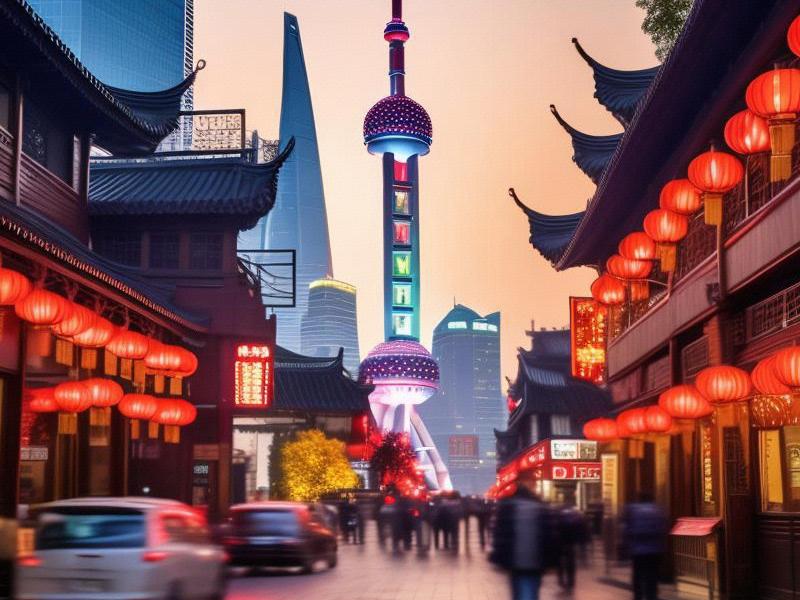
Nestled on the banks of the Huangpu River, Shanghai stands as a beacon of China's rapid modernization. Yet, beneath its gleaming skyscrapers and bustling streets lies a rich tapestry of culture that tells the story of a city that has been a crossroads of civilizations for centuries.
Historical Foundations of Shanghai Culture
Shanghai's cultural identity is deeply rooted in its history. Originally a small fishing village, Shanghai began to grow in importance during the Ming and Qing dynasties when it became a major port for trade. The opening of the Treaty Ports in 1842 following the First Opium War marked a turning point, as Shanghai was forced open to foreign trade and influence. This period saw the establishment of the International Settlement and the French Concession, areas where Western architecture, law, and customs coexisted with traditional Chinese elements.
The blending of Eastern and Western cultures during this era laid the foundation for Shanghai's cosmopolitan character. The city became known as the "Paris of the East," a nickname that reflects its reputation for elegance, sophistication, and a vibrant cultural scene.
Traditional Customs and Festivals
Despite its modern veneer, Shanghai remains deeply connected to its traditional customs and festivals. One of the most significant is the Spring Festival, or Chinese New Year, which is celebrated with great enthusiasm. Families gather for reunions, exchange red envelopes containing money, and partake in traditional foods such as dumplings and fish.
Another important festival is the Mid-Autumn Festival, when families come together to admire the full moon and eat mooncakes. The Dragon Boat Festival, with its dragon boat races and the consumption of zongzi (sticky rice dumplings), is also widely celebrated.
夜上海最新论坛 Shanghai's culinary traditions are a testament to its cultural diversity. The city is renowned for its "Shanghainese cuisine," which is characterized by its sweet and savory flavors, delicate textures, and meticulous preparation. Dishes such as xiaolongbao (soup dumplings), shengjianbao (pan-fried dumplings), and hongshao rou (red-braised pork) are must-tries for food enthusiasts.
Modern Influences and Cultural Scene
In recent decades, Shanghai has emerged as a global cultural hub, attracting artists, musicians, and performers from around the world. The city boasts a vibrant arts scene, with numerous galleries, theaters, and concert venues. The Shanghai Museum, housed in the former Astor House Hotel, is a world-class institution that showcases a vast collection of Chinese art, including ancient ceramics, calligraphy, and paintings.
The city's contemporary art scene is thriving, with the M50 Creative Park and the Power Station of Art being prominent venues for experimental and avant-garde art. These spaces provide a platform for local and international artists to showcase their work, fostering a dynamic exchange of ideas and creativity.
Shanghai's music scene is equally diverse, blending traditional Chinese music with modern genres such as jazz, rock, and electronic music. The city hosts numerous music festivals and concerts throughout the year, attracting both domestic and international performers.
Architecture and Urban Landscape
上海龙凤419 Shanghai's architecture is a visual representation of its cultural blend. The Bund, a waterfront area along the Huangpu River, is home to a stunning array of historic buildings that reflect the city's colonial past. These structures, ranging from Gothic-style churches to Art Deco skyscrapers, stand in contrast to the modern high-rises of Pudong, the financial district on the opposite side of the river.
Pudong is a symbol of Shanghai's rapid modernization and economic prowess. The iconic Oriental Pearl Tower, the Jin Mao Tower, and the Shanghai Tower are among the tallest buildings in the world, showcasing the city's ambition and innovation. The Lujiazui Financial District, with its glass-and-steel skyscrapers, is a hub of business and finance, while the Yu Garden and the surrounding Old Town preserve the city's historical charm.
Cultural Festivals and Events
Shanghai hosts a wide range of cultural festivals and events throughout the year, celebrating its rich heritage and promoting cultural exchange. The Shanghai International Film Festival, one of Asia's oldest and most prestigious film festivals, attracts filmmakers and cinephiles from around the globe. The Shanghai Fashion Week, held twice a year, showcases the latest trends in fashion and design, positioning Shanghai as a leading fashion capital.
The city also celebrates its cultural diversity through events such as the Shanghai International Arts Festival and the Shanghai World Expo, which brought millions of visitors to the city in 2010. These events highlight Shanghai's role as a global cultural hub and its commitment to fostering international cooperation and understanding.
Education and Intellectual Life
爱上海419论坛 Shanghai is home to some of China's most prestigious universities and research institutions, including Fudan University, Tongji University, and the Shanghai Jiao Tong University. These institutions contribute to the city's intellectual life, fostering innovation and academic excellence.
The city's libraries, museums, and cultural centers provide resources for learning and exploration. The Shanghai Library, one of the largest in China, houses a vast collection of books, manuscripts, and digital resources. The Shanghai Natural History Museum and the Shanghai Science and Technology Museum offer interactive exhibits that engage visitors of all ages.
Conclusion
Shanghai's culture is a dynamic blend of tradition and modernity, reflecting its unique history and position as a global city. From its historic architecture and traditional festivals to its vibrant arts scene and modern landmarks, Shanghai offers a rich and diverse cultural experience that continues to evolve and inspire.
As Shanghai continues to grow and develop, it remains committed to preserving its cultural heritage while embracing the opportunities of the future. The city's ability to harmonize its past with its present is a testament to its resilience and creativity, making it a fascinating destination for those seeking to explore the complexities of Chinese culture in a modern context.
Whether you are strolling along the Bund, savoring the flavors of Shanghainese cuisine, or immersing yourself in the city's vibrant arts scene, Shanghai offers an unparalleled cultural experience that captures the essence of this iconic city.
